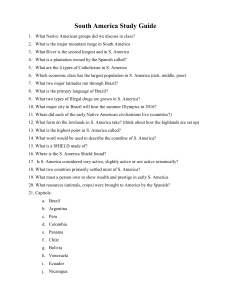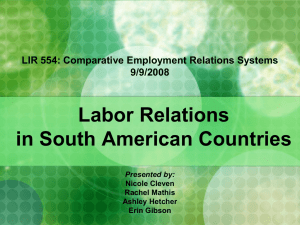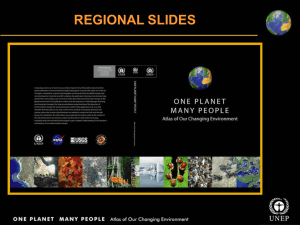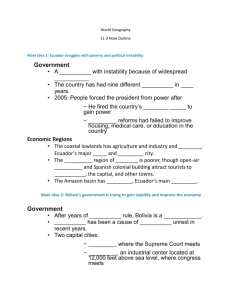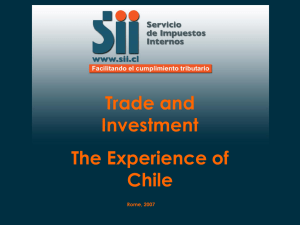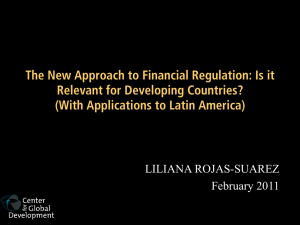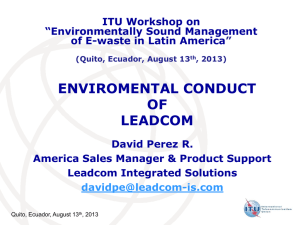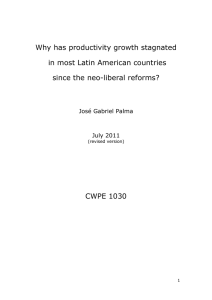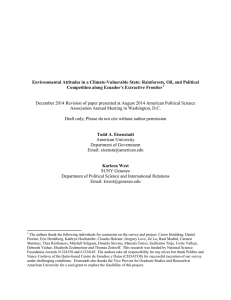Workshop on International Law, Natural Resources and Sustainable Development
advertisement
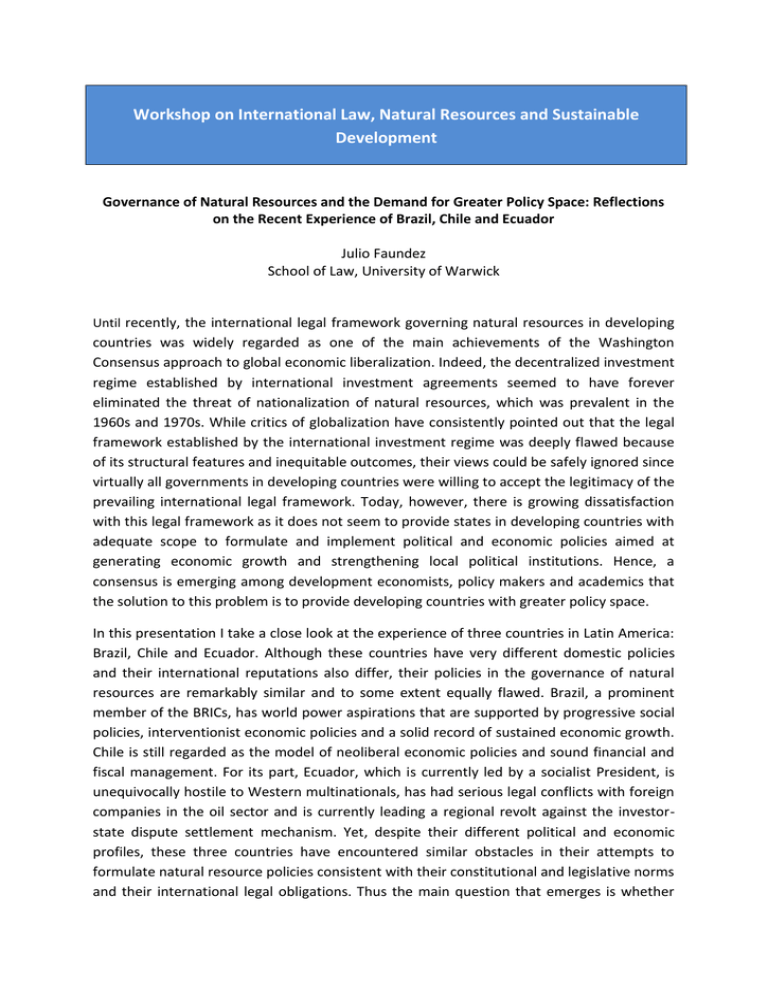
Workshop on International Law, Natural Resources and Sustainable Development Governance of Natural Resources and the Demand for Greater Policy Space: Reflections on the Recent Experience of Brazil, Chile and Ecuador Julio Faundez School of Law, University of Warwick Until recently, the international legal framework governing natural resources in developing countries was widely regarded as one of the main achievements of the Washington Consensus approach to global economic liberalization. Indeed, the decentralized investment regime established by international investment agreements seemed to have forever eliminated the threat of nationalization of natural resources, which was prevalent in the 1960s and 1970s. While critics of globalization have consistently pointed out that the legal framework established by the international investment regime was deeply flawed because of its structural features and inequitable outcomes, their views could be safely ignored since virtually all governments in developing countries were willing to accept the legitimacy of the prevailing international legal framework. Today, however, there is growing dissatisfaction with this legal framework as it does not seem to provide states in developing countries with adequate scope to formulate and implement political and economic policies aimed at generating economic growth and strengthening local political institutions. Hence, a consensus is emerging among development economists, policy makers and academics that the solution to this problem is to provide developing countries with greater policy space. In this presentation I take a close look at the experience of three countries in Latin America: Brazil, Chile and Ecuador. Although these countries have very different domestic policies and their international reputations also differ, their policies in the governance of natural resources are remarkably similar and to some extent equally flawed. Brazil, a prominent member of the BRICs, has world power aspirations that are supported by progressive social policies, interventionist economic policies and a solid record of sustained economic growth. Chile is still regarded as the model of neoliberal economic policies and sound financial and fiscal management. For its part, Ecuador, which is currently led by a socialist President, is unequivocally hostile to Western multinationals, has had serious legal conflicts with foreign companies in the oil sector and is currently leading a regional revolt against the investorstate dispute settlement mechanism. Yet, despite their different political and economic profiles, these three countries have encountered similar obstacles in their attempts to formulate natural resource policies consistent with their constitutional and legislative norms and their international legal obligations. Thus the main question that emerges is whether these obstacle stem from lack of adequate policy space and, if so, whether enhancing it would enable these countries to formulate more coherent policies. If the answer is negative, then perhaps we should either define more precisely what we mean by policy space or perhaps look elsewhere.
